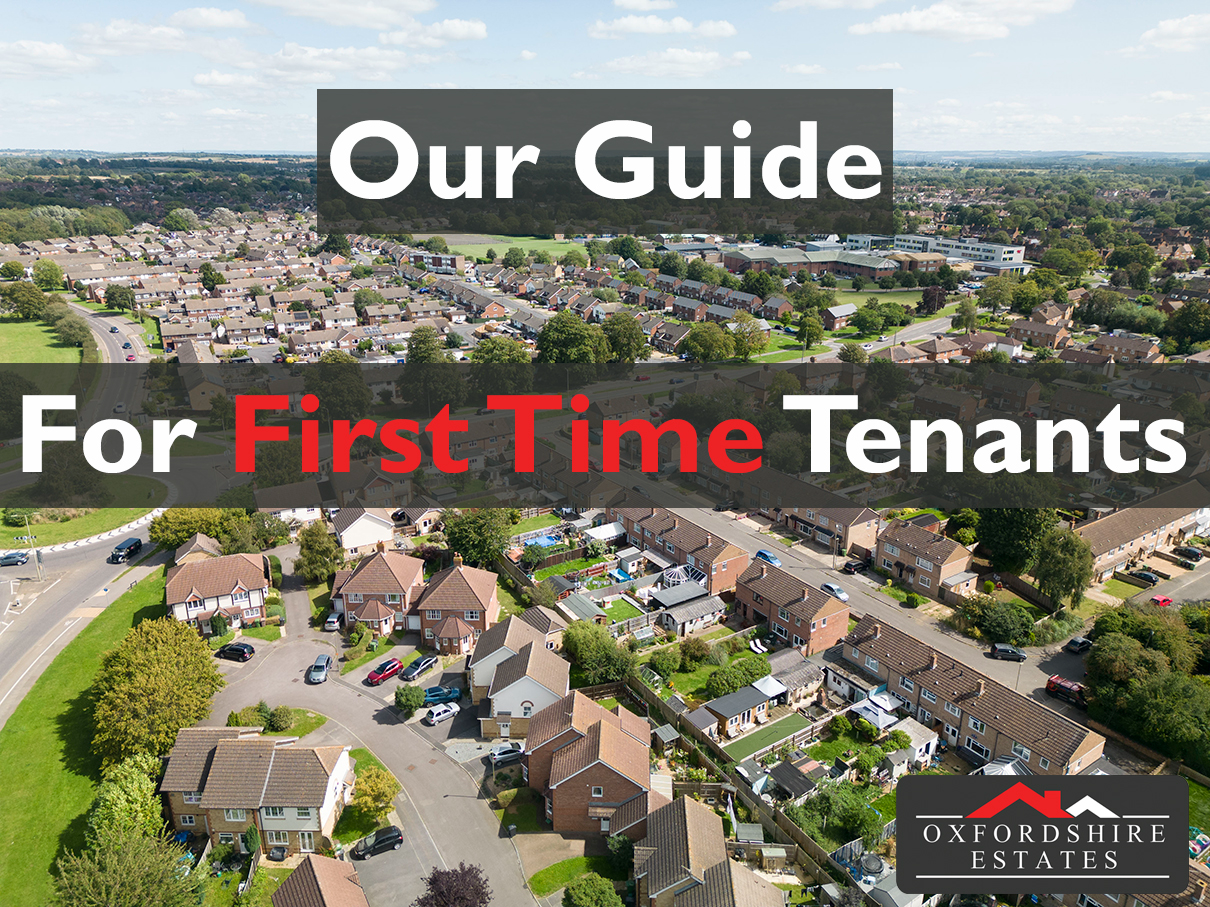
Oxfordshire Estates Guide for First Time Tenants
Whilst renting your first home is undoubtedly exciting, it can also feel a confusing and intimidating process. Most people have a number of Common Questions, which we are setting out with Answers for your guidance.

I have found a Property I wish to Rent.
How do I apply?
Once you find a suitable home to rent, we shall ask you to submit a Letting Application. You can either complete this Online from Home or at our Offices in Abingdon. We shall also require supporting documents which include Photographic ID, Proof of Address and Income details.
Do Tenants have to pay any Fees?
The Tenant Fees Act 2019 in effect abolished most Application Fees payable by Tenants with a few exceptions. As a result there are no Letting Application Fees chargeable to you as the Tenant. We charge your Landlord instead for the Letting Application Checks and related work for your Tenancy.
We shall request you to pay a Refundable Holding Deposit to reserve the Letting Property. This is calculated as 1 week's Rent. You are entitled to a refund if you do not complete the Tenancy but in certain circumstances we can claim fixed costs for abortive work such as Credit Check-see later.
What happens next?
We notify your prospective Landlord of your Application without disclosing Confidential Information (like Income) in order to comply with GDP Rules. If several parties are interested we request the Landlord to choose the successful Tenant.
How much do I have to earn to Rent a Property?
As part of our checks, an Affordability Assessment is carried out for the Letting Property you are looking to Rent. There are Two Reasons for this:
1. to protect your prospective Landlord by ensuring their new Tenant has adequate Net Income to pay the Rent without difficulty.
2. Equally, we owe you a Duty of Care and we do not want to see you as our new Tenant struggle financially.
By way of guidance we will look for a Gross Income of 2.5 x the Agreed Rent. If it is a Joint Letting Application then additional Incomes are taken into consideration.
Will a Credit Check be completed?
A Credit Check will be undertaken on all prospective Tenants as part of their Letting Application. In addition checks will include entitlement for Right To Rent and similar legal requirements.
We recommend that you answer all questions as accurately as possible including any adverse Credit History.
What is a Guarantor?
A Guarantor is someone who is willing to accept Legal Responsibility for your Financial and Personal Obligations will underwrite the Tenancy Agreement. i.e. if you were left in a position where you could not pay your Rent, they would cover this. They would also be liable for the condition of the Property at the end of the Rental Term. In some instances Tenants are able to add a Guarantor to their Letting Application. This can assist with Rent Affordability Checks and is not uncommon. Your Landlord has discretion to accept or reject a proposed Guarantor.
How much will I have to pay?
An Assured Shorthold Tenancy provides for a Statutory Deposit of 5 weeks' Rent together with Rent payable Monthly in advance.
You can deduct any Preliminary Holding Deposit of One Week's Rent
How do I pay my Rent?
In practice this day is the same as one month after completion.
Who holds my Deposit?
How will this be decided?
How long will my Tenancy Agreement be for?
What is an Assured Shorthold Tenancy Agreement?
Will my Rent increase during my Tenancy?
How often will you inspect my home?
Alternatively if your Landlord manages direct then they will set frequency.
We hope that you find this summary useful!
When you are approved for a New Tenancy with us we forward a Zip Folder for you to print and retain. Enclosures include Energy Performance Certificate, (EPC) Electrical Condition and Inspection Report (ECIR) Gas Safety Certificate if applicable and Government How To Rent Booklet/Prescribed Information. In addition we provide the Assured Shorthold Tenancy Agreement, DPS Registration Form and related Documents. These are important Legal subjects and we strongly recommend that you read them carefully and take Professional Advice before signing.
